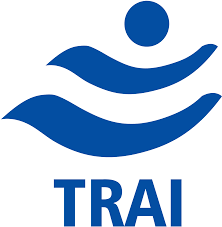TRAI Leads Cross-Regulatory Charge to Curb Telecom Fraud and Digital Scams
One of the major discussions focused on implementing a dedicated 1600-number series for all transactional and service calls in the banking, financial services, and insurance (BFSI) sector.

- Country:
- India
In a concerted effort to fortify India’s digital infrastructure against rising threats from spam, telecom-based fraud, and digital payment-related scams, the Telecom Regulatory Authority of India (TRAI) convened a crucial meeting of the Joint Committee of Regulators (JCoR) in New Delhi. The gathering saw active participation from top financial and regulatory institutions, including the Reserve Bank of India (RBI), Securities and Exchange Board of India (SEBI), Insurance Regulatory and Development Authority of India (IRDAI), Pension Fund Regulatory and Development Authority (PFRDA), and Ministry of Electronics and Information Technology (MeitY).
Senior officials from the Department of Telecommunications (DoT), Ministry of Home Affairs (MHA), and the National Payments Corporation of India (NPCI) also joined the deliberations to foster multi-agency synergy in tackling telecom-based fraud.
Tackling BFSI Spam: Urgent Transition to 1600-Series Numbers
One of the major discussions focused on implementing a dedicated 1600-number series for all transactional and service calls in the banking, financial services, and insurance (BFSI) sector. This move aims to enhance customer trust by standardizing the source of authentic communication from verified institutions.
Given the varying operational capabilities of different organizations, regulators have agreed to a phased migration plan. Sectoral regulators will coordinate with TRAI to determine entity-specific timelines, ensuring a seamless and scalable shift away from ambiguous or spoofed caller IDs.
Launch of Pilot Project on Digital Consent Acquisition (DCA)
In a landmark development, TRAI and RBI have jointly rolled out a pilot project on Digital Consent Acquisition (DCA)—a strategic step to empower consumers with real-time control over commercial communications.
The new DCA system replaces traditional, unverifiable offline consent mechanisms with a secure, tamper-proof digital consent framework. Consumers will soon be able to digitally register, review, and revoke permissions via a unified platform.
The pilot involves collaboration with eight telecom service providers (TSPs) and seven leading banks, including:
-
State Bank of India (SBI)
-
Punjab National Bank (PNB)
-
ICICI Bank
-
HDFC Bank
-
Axis Bank
-
Canara Bank
-
Kotak Mahindra Bank
A day-long workshop held on 21st July 2025, co-hosted by TRAI and RBI, laid the groundwork for the pilot. Stakeholders collectively addressed operational, legal, and technical concerns surrounding digital consent. Four dedicated working groups will now steer the pilot through its implementation stages, focusing on technical enablement, regulatory oversight, consumer awareness, and platform integration.
New Mechanisms to Counter Telecom-Based Financial Frauds
To fast-track the disruption of fraudulent telecom activities, the JCoR emphasized the need for automated data exchange among key platforms:
-
I4C (Indian Cyber Crime Coordination Centre)
-
Digital Intelligence Platform (DoT)
-
Distributed Ledger Technology (DLT) systems maintained by telecom access providers
This integrated data sharing will enable real-time detection and disconnection of numbers associated with cybercrime, especially those used for phishing, scam calls, and UPI-linked frauds.
Regulating Misuse of Enterprise Telecom Lines
Another critical concern raised was the misuse of enterprise-grade SIP and PRI lines for mass spam and unsolicited communication. The committee is exploring regulatory safeguards including:
-
Issuance of such lines from designated number ranges.
-
Enforcing stricter KYC and monitoring norms on bulk line users.
Revamped SMS Header Portal for Customer Empowerment
TRAI has also revamped its SMS header portal—smsheader.trai.gov.in—providing consumers with a tool to identify and verify entities sending commercial messages. This portal will serve as a frontline defense for users to distinguish between genuine and deceptive communications.
NPCI's Inclusion Marks a Turning Point
With digital payment scams on the rise, the formal inclusion of NPCI (National Payments Corporation of India) as a strategic stakeholder in JCoR marks a major step in aligning financial and telecom infrastructures. NPCI’s role will be critical in tracking and responding to UPI-based fraud patterns emerging from compromised telecom resources.
Chairman’s Call for Cross-Sectoral Vigilance
TRAI Chairman Shri Anil Kumar Lahoti hailed the collaborative spirit of the JCoR forum. “In a digital-first economy, cross-sectoral collaboration is essential not only for enabling services but also for protecting consumers from harm,” he said. The Chairman also praised the DoT’s recent introduction of the Financial Fraud Risk Indicator (FRI), a tool that tags and flags suspicious phone numbers associated with financial scams.
He concluded with a strong call to action: “Sectoral regulators must accelerate implementation within their respective domains and monitor progress closely. Our shared goal is to build a reliable, secure, and consumer-centric digital ecosystem.”










